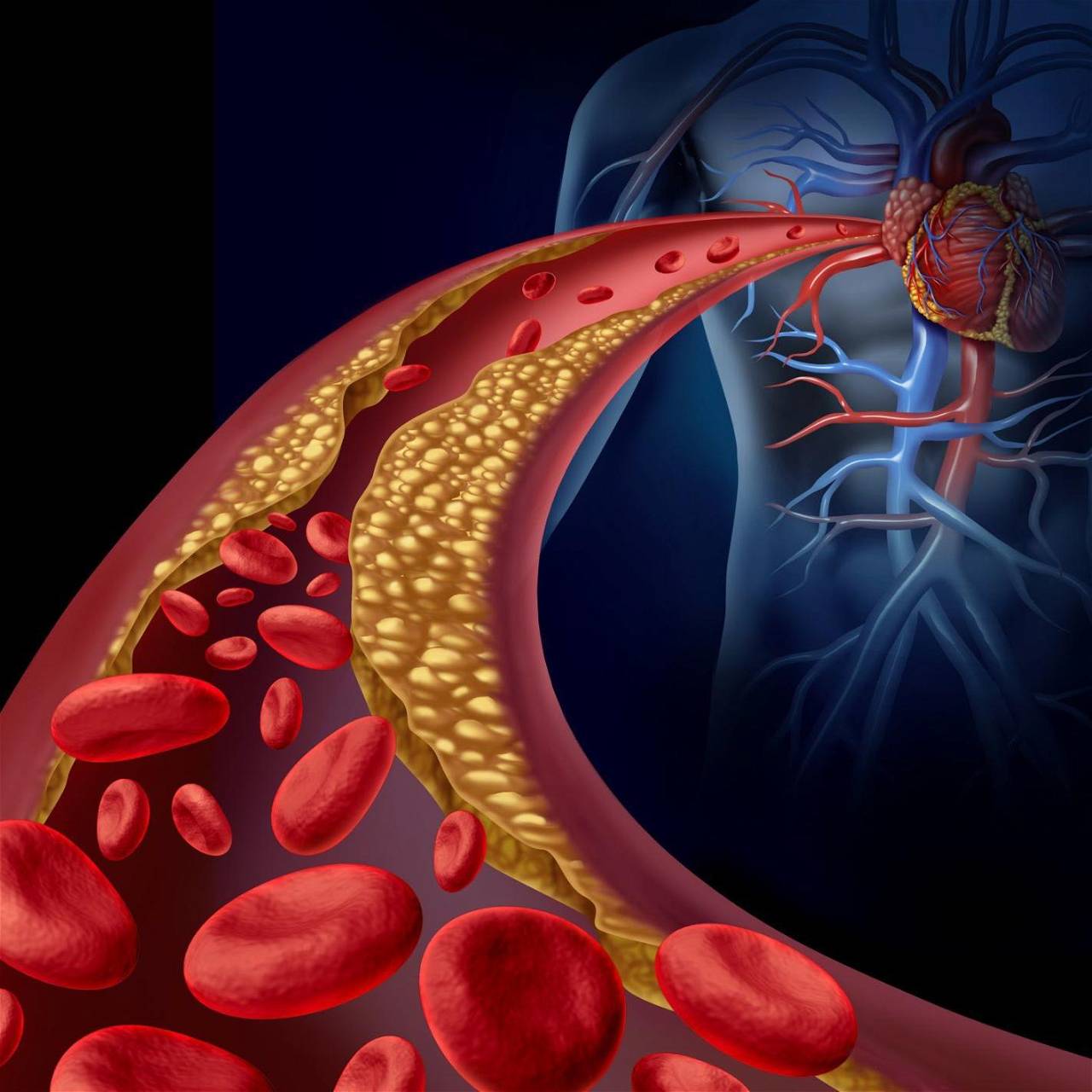
Cholesterol is a fat-like and waxy substance, which helps your body make cell membranes, many hormones & vitamin D. The cholesterol in our blood comes from 2 sources i.e. the foods we eat and the liver. Though our body needs cholesterol to build healthy cells, high levels of cholesterol can increase the risk of heart disease.
What is High Cholesterol?
With High Cholesterol, your body develops fatty deposits in blood vessels. These deposits grow eventually and make it difficult for the blood to flow through the arteries. Sometimes, these deposits suddenly break & form a clot that causes a heart attack. Cholesterol is vital for the formation of cell membranes, certain hormones & Vitamin D. It does not dissolve in water and can travel through the body by itself. The practice is known as lipoprotein help in the transport of cholesterol through the bloodstream.
There are two forms of Lipoproteins
Low-density lipoproteins are also known as ‘bad cholesterol, can build up in arteries & lead to serious health problems, like heart attack/stroke.
High-density lipoprotein is also known as ‘good cholesterol’ which helps to return the LDL cholesterol to the liver for elimination.
Eating too many foods, which contain a high amount of fat, leads to an increase in the level of LDL cholesterol in your blood. This is known as ‘High Cholesterol’ and is also called hypercholesterolemia or hyperlipidemia.
If the level of LDL cholesterol is too high, or the level of HDL cholesterol is too low, then the fatty deposits build up in your blood vessels. These deposits make it difficult for the blood to flow through the arteries. And, this could literally cause problems in your body, especially in your brain & heart.
What are the Symptoms of ‘High Cholesterol’?
Know about the symptoms that the body shows when you have high cholesterol;
High cholesterol does not have any particular symptom. In many cases, high cholesterol only causes the emergency events. For instance, in many cases, a person usually notices fatty bump in their skin and body that are white or grayish in color.
According to the National Heart, Lung & Blood Institute, these symptoms usually occur in a person, who has the family history of high cholesterol.
Genetic Conditions
There is a condition that passes through the genes that causes high cholesterol and called Familial hypercholesterolemia. People with this condition, have the cholesterol levels of 300 mg/dl or higher. They may experience xanthoma, which can appear as a yellow patch above skin, or lump underneath the skin.
Heart Attack
The arteries that supply the heart with the blood can slowly narrow due to buildup of plaque. This process is known as atherosclerosis that happens slowly over the time & has no symptoms. Eventually, a piece of plaque breaks-off, and when this happens, a blood clot forms around plaque. This can block the flow of blood to the heart muscle & deprive it of oxygen & nutrients.
Peripheral Arterial Disease
Peripheral Arterial Disease can occur, when the plaque builds up in walls of the arteries. This will block blood flow in arteries that supplies the blood to kidneys, stomach, arms, feet & legs.
Symptoms of early Peripheral Arterial Disease include:
-
Aches
-
Cramping
-
Fatigue
-
Discomfort in legs & feet
-
Pain in legs during activity/exercise called intermittent claudication.
Cholesterol Diagnosis
A blood test is the only way to detect, if your cholesterol is too high. This means having a blood cholesterol level of above 240 milligram per deciliter. You can ask your doctor to give you a cholesterol test after you turn 20 years old. After every 4 to 6 years, you should definitely recheck your cholesterol.
The recommended schedules for the cholesterol test are as follows:
-
Adults aged between 20 to 65 years should get a test every 5 years.
-
Females aged between 55 to 65 years should get a test every 1 to 2 years.
-
Males aged between 45 to 65 years should get a test every 1 to 2 years.
-
People with the heart disease or a family history of a high cholesterol should get a test frequently.
-
Children, who are above 9 to 11 years should undergo the screening & get a test every 5 years.
-
People aged 65 years or above 65 years should get a cholesterol test every year.
















